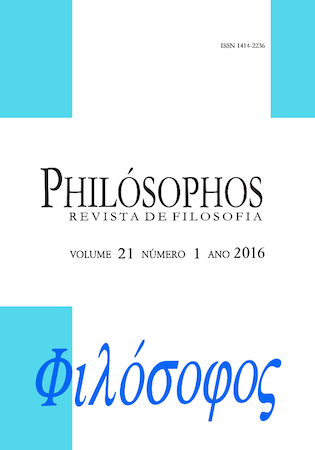THE DOUBLE IMPLICATION OF THE EPOCHE AND ITS RELATION WITH THE WORLD IN THE PHENOMENOLOGY OF EDMUND HUSSERL
DOI:
https://doi.org/10.5216/phi.v21i1.35564Keywords:
Consciousness, world, epoché, phenomenological idealism.Abstract
This paper aims to investigate the relationship between the phenomenological epoché and the phenomenological problem of the relationship between the consciousness and the world. Initially, the article examines the first implication of the exercise of epoché: the idea of "loss of the world." Then examines the second implication of this exercise: the idea of "recovery of the world" in the transcendental consciousness. Finally, the article elucidates the specificity of phenomenological idealism of Husserl. The widespread exercise of the epoché does not imply a denial of the existence of the world. The task of this idealism is elucidate the phenomenological sense of this world that is formed intentionally in the transcendental subjectivity.
Downloads
Downloads
Published
How to Cite
Issue
Section
License
Authors who publish in this journal agree to the following terms:
- Authors retain copyright and grant the journal right of first publication, with the work simultaneously licensed under a Creative Commons Attribution License that allows others to share the work with an acknowledgement of the work's authorship and initial publication in this journal.
- Authors are authorized to enter into separate, additional contractual arrangements for the non-exclusive distribution of the journal's published version of the work (e.g., publishing in an institutional repository or as a book chapter), with an acknowledgement of its authorship and initial publication in this journal.















